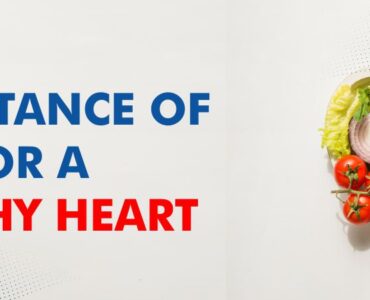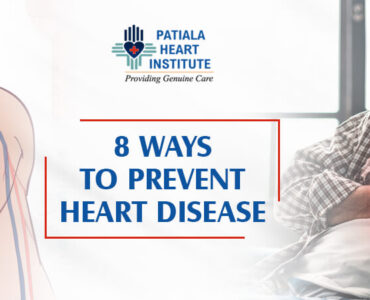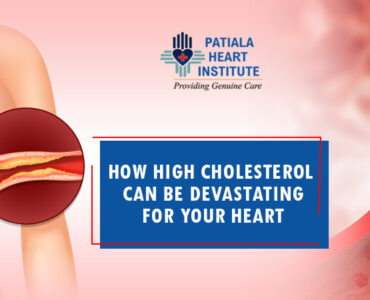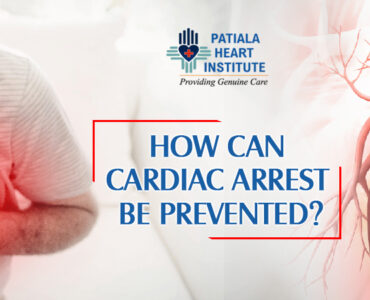According to a study, “The number of people aged 18 to 30 years who died from heart attacks in India was 2,541 in 2021, and 2,695 in 2020”.
Not so long ago, heart attack was primarily a problem faced by older adults. It was extremely rare for people younger than 40 to suffer from such a problem. But now the scenario has completely changed; 1 in 5 heart attack patients is younger than 40 years.
Heart attack is a highly serious issue; now, it is seen in people of younger age groups, which is a more serious concern. The worse thing is it causes sudden death, as we have recently witnessed in the cases of Actor Sidharth Shukla, Raju Srivastav, South Indian actor Puneeth Rajkumar, and Singer KK, which has shaken the entire world. Reportedly there has been a rise in heart diseases, and in most cases, sudden heart attacks cost the lives of people in their 20s, 30s, and 40s.
So, let us delve deeper to understand the reasons for heart attack at a young age.
What is Heart Attack?
Myocardial Infarction (MI), commonly known as Heart Attack, is a heart muscle disease caused by an interrupted blood flow to the organ. The most common cause of a heart attack is coronary artery disease, which narrows the arteries that supply blood and oxygen to your heart muscle.
During a heart attack, part of the heart muscle becomes damaged or dies because it’s not receiving enough blood and oxygen. This can get damaged if a coronary artery is completely blocked by plaque or narrowed by plaque rupture and clot formation (thrombosis). Even if it’s partially blocked or narrowed, some heart muscles won’t receive enough blood.
Heart attacks often cause chest pain or discomfort, usually lasting more than several minutes. Other symptoms include shortness of breath, nausea or vomiting, lightheadedness, and weakness.
Common Signs and Symptoms of a Heart Attack
When you have a heart attack, your body loses blood flow to the heart muscle. This causes chest pain and discomfort. It can also cause shortness of breath, lightheadedness or fainting, sweating, and nausea or vomiting.
Chest pain is usually the first sign of a heart attack. It may feel like pressure, tightness, or squeezing in your chest. It can last for seconds or minutes, but it can also go on for hours. The pain often spreads to other areas of your body — including your back, neck, jaw, and arms. The location of the pain doesn’t tell you whether you’re experiencing it in the heart or not — it’s possible to have pain in more than one place at a time.
The severity of the pain isn’t always an indicator of how serious it is either — some people have very mild pain that comes and goes; others have crushing chest pain that makes it hard to breathe. If you have chest pain, seek medical help right away, even if you think it’s just indigestion or gas pains.
In addition to chest pain, other signs and symptoms may include:
- Shortness of breath (like when you climb stairs)
- Nausea or vomiting
- Light-headedness
Why heart attack occurs at a young age?
Various factors, including smoking and high cholesterol, can trigger a heart attack. Consult your doctor if you have heart disease risk factors or are concerned about your risk. Let us talk about these risk factors in detail:
High Blood Pressure :
High blood pressure, also known as hypertension which is quite prevalent among youngsters, is a significant risk factor for heart attacks. It occurs when the force of blood against the artery walls is too high, and over time it can damage the blood vessels and increase the risk of heart disease, heart attack, and stroke.
Therefore, it is essential to go for regular checkups and work with a healthcare provider to manage and control high blood pressure to reduce the risk of a heart attack. You can even make specific lifestyle changes to help you control your high blood pressure.
Cholesterol :
Lack of exercise, unhealthy eating patterns, and smoking are common causes of high cholesterol among youngsters. Cholesterol is a waxy substance found in the blood’s fats (lipids). When there is too much cholesterol in the blood, it can build up in the walls of the arteries, forming plaque. This plaque can narrow the arteries and make it harder for blood to flow through.
This can increase the risk of a heart attack or stroke. High levels of LDL (low-density lipoprotein) cholesterol, also known as “bad” cholesterol, are particularly dangerous. If you know you have high cholesterol, make sure you seek a doctor and try to control it so that you don’t suffer heart disease or a stroke.
Smoking and Tobacco Consumption :
A recent study found that vaping made you 34% more likely to have a heart attack than non-vapers.
Smoking and tobacco consumption have become a fashion among today’s youngsters, but it can put your heart health at risk and even cost your life. Smoking harms nearly every organ in your body, including your heart. Smoking can damage and constrict the blood vessels, leading to plaque buildup in the arteries. This increases the risk of a blockage and a heart attack.
In addition to smoking, the use of other tobacco products, such as chew or snuff, can also increase the risk of a heart attack. Quitting smoking and avoiding tobacco consumption can significantly reduce the risk of a heart attack.
Overweight and Obesity :
Being overweight or obese is also a risk factor for heart attacks. Consuming fast food and having a poor diet can push you to the brink of obesity and heart disease. Obesity is defined as having a body mass index (BMI) of 30 or higher. Being overweight increases the risk of developing several health conditions, such as high blood pressure, high cholesterol, and diabetes, all of which are also risk factors for a heart attack.
Excess weight also stresses the heart and blood vessels, leading to plaque build-up in the arteries, thereby increasing the risk of a heart attack. It is possible to significantly reduce the risk of heart attack by maintaining a healthy weight with regular exercise and a healthy diet.
Diabetes :
Diabetes is a condition in which the body cannot properly use and store glucose (a type of sugar), resulting in high blood sugar levels. People with diabetes have an increased risk of developing heart disease due to the damage high blood sugar levels can cause to the blood vessels and the heart.
Diabetes can also raise the risk of hypertension and high cholesterol, two other heart attack risk factors. Diabetes patients should seek medical advice to reduce their risk of heart attacks by managing their blood sugar levels.
Substance abuse :
Substance abuse can take a toll on your heart. Certain drugs, such as cocaine and methamphetamine, can cause a rapid and irregular heartbeat, also known as arrhythmia, leading to a heart attack. Furthermore, these drugs constrict blood vessels, increasing blood pressure and decreasing heart blood flow.
Long-term alcohol abuse can also lead to high blood pressure, heart disease, and heart failure. In addition, alcohol abuse can also aggravate obesity and diabetes, which are risk factors for heart attacks. To address and reduce the risk of heart attacks and other health problems, you should seek professional help if you suffer from substance abuse.
Thus, young adults should be aware of these risk factors to reduce their chances of a heart attack. Healthy lifestyle habits can prevent heart disease. If you want a healthy heart, make sure you adopt them.
Why do young people die from heart attacks?
Though there’s no sure-shot answer to this question, young people often die from heart attacks due to a genetic condition that causes the heart muscle to grow too thick. This thickening makes it quite challenging for the heart to pump blood and causes faster heartbeats, resulting in rhythmic heart disorders.
Moreover, other factors can also cause death in young people, including unhealthy lifestyle habits such as smoking, poor diet and lack of exercise, high-stress levels, substance abuse, and undiagnosed or uncontrolled medical conditions such as high blood pressure and diabetes.
Conclusion
A heart attack is a critical health condition and can prove fatal. The best way to prevent a heart attack is to regularly ensure a good diet and exercise. If you experience chest pain or pressure, you must seek medical attention immediately because it could be a sign of an impending heart attack.
Most importantly, find an expert & experienced cardiologist to guide you through this phase. Patiala Heart Institute houses the best cardiologists to help you manage your heart health through regular monitoring and guidance. If you want to know more, book an appointment with us today.
Can a heart attack be prevented in young people?
Yes, a heart attack can be prevented in young people through lifestyle changes and, if necessary, medical intervention. Also, having a healthy diet, exercising regularly, and not smoking can prevent heart disease.
Additionally, managing underlying health conditions such as high blood pressure, diabetes, and high cholesterol can also help reduce the risk of a heart attack. Furthermore, young people should be aware of any risk factors, such as a family history of heart disease, and should seek medical attention if they have any concerns about their heart health.
What is the survival rate for a heart attack in young people?
The survival rate for a heart attack in young people cannot be defined, as it depends on various factors, such as the severity of the attack, the speed of response, and the person's health before the attack. Early detection and treatment of symptoms, including calling emergency services, can significantly improve the chances of survival. Prompt and appropriate medical care can also improve survival rates, including emergency department treatment and follow-up care.







